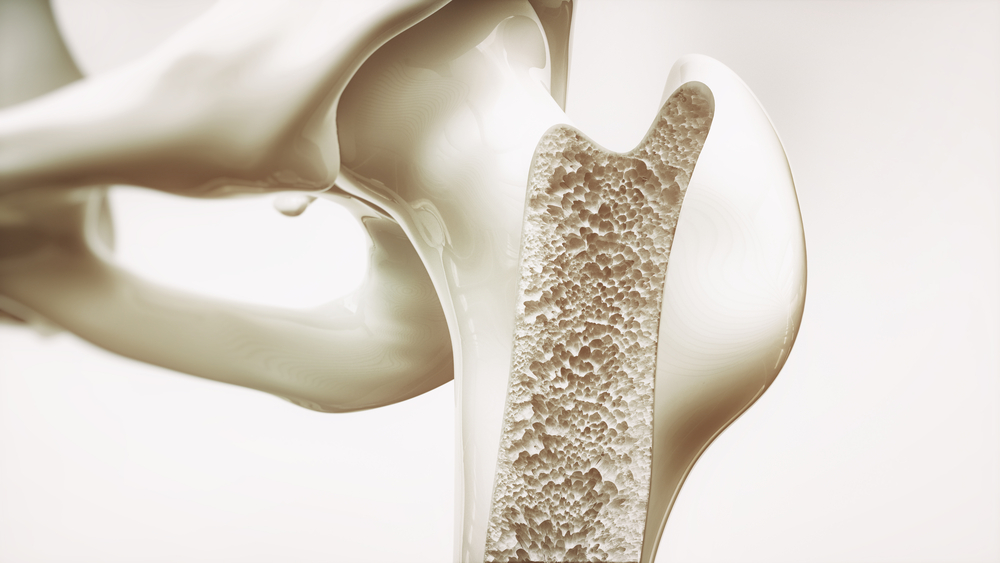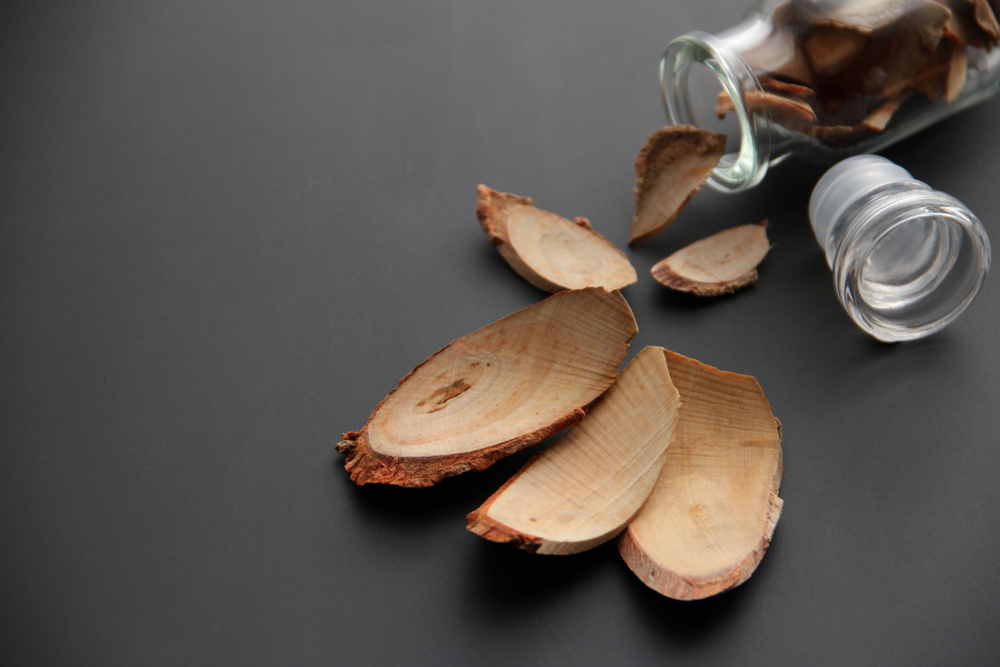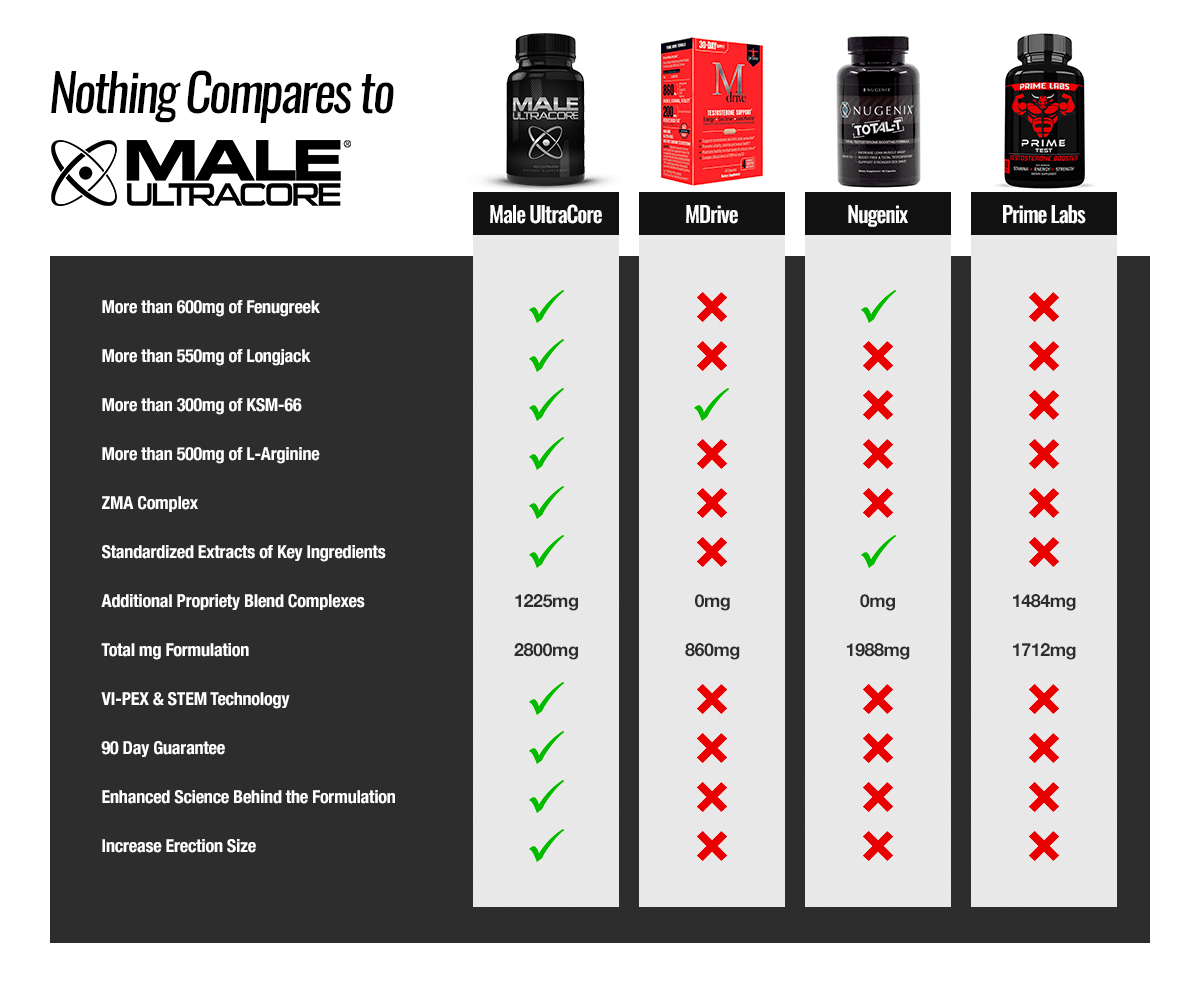You may have already heard that a lot of menopausal women are suffering from osteoporosis. In truth, the same is true for men who are either going through andropause or are suffering from low testosterone levels.
Testosterone isn’t just necessary for your sex drive, lean muscle mass, or sexual performance. Testosterone deficiency can make your bones brittle and easily fracture. Read on to learn about the connection between your primary androgen and osteoporosis.
What Is Osteoporosis?
Put simply, osteoporosis is a bone disease. Technically speaking, however, the World Health Organization (WHO) defines it as a condition typically characterized by low bone mass and bone deterioration, which then causes the bones to become fragile and increases one’s susceptibility to bone fractures.
Doctors usually make use of a bone density test in order to help them diagnose whether you have osteopenia or osteoporosis. Osteopenia means your bone density is already declining, but that your bone loss is not yet so severe as to be diagnosed as osteoporosis.
A bone density test also helps doctors determine whether you have a high risk for fractures. The test basically allows a doctor to evaluate how much calcium and other bone minerals one square centimeter of your bone contains. Ideally, your bone should contain a high concentration of bone minerals.

Bone mass density is one of the many factors that doctors consider when they perform a fracture risk assessment. Treatment for osteopenia or osteoporosis will depend on the results of the fracture risk assessment.
A 2017 study revealed that the global prevalence of osteoporosis is only less than 1% for men aged 50-60 years old and less than 2% for men aged 60-70 years old. However, the trend sharply increases for men older than 70 years. Among men aged 90 years or older, the prevalence of osteoporosis is higher than 20%.
How Testosterone Affects Your Bone Health
Although male osteoporosis is less studied than female osteoporosis, the studies on male osteoporosis published to date have shown that hypogonadism or low testosterone causes about 16-30% of male osteoporosis.
Androgen receptors are molecules found in cells that bind with androgens like testosterone and dihydrotestosterone (DHT). Androgen receptors are actually present in various bone cells such as osteoblasts, osteoclasts, osteocytes, and bone cell progenitors.
Osteoblasts are responsible for bone deposition, while osteocytes take care of bone homeostasis. Osteoclasts, on the one hand, are responsible for bone resorption. The fact that androgen receptors are present in these cells indicate that androgens like testosterone play a direct role in the various functions of these bone cells.
Through various animal studies, experts have shown that the absence of androgen receptors in osteoblasts result in reduced trabecular bone mass, as well as fewer trabeculae. Trabecular bones are the ones that contain red bone marrow, and they are typically found at the tip of long bones. They are porous and quite susceptible to bone fracture.
Studies indicate that both testosterone and androgen signaling are necessary for bone development and maintenance. In fact, research also shows that men who suffer from androgen insensitivity syndrome tend to have significantly lower bone mass density, particularly in their lumbar spine.
Testosterone levels also indirectly affect bone density through another mechanism. Through the actions of aromatase, a small amount of free testosterone is typically converted into estrogen, which is another hormone that helps maintain bone density stability.
Studies have also shown that there is a high prevalence of osteopenia and osteoporosis among men with aromatase deficiency. In addition, men with low free testosterone levels also have higher risks of osteoporosis since they have less free testosterone available for conversion to estrogen.
Increasing Your Testosterone Levels for Improved Bone Health
Did you know that men have higher risks of dying due to osteoporosis-related fractures? Keeping your bones healthy is another important reason why you should make sure that your testosterone levels are always high.
Of course, if you’re at risk of developing osteoporosis, you can always ask your doctor if he can prescribe testosterone replacement therapy for you. However, you don’t really have to wait until you’re old and your testosterone levels are already falling before you take steps to increase your testosterone levels.
There are numerous ways to ensure that your testosterone levels don’t fall below normal, one of which is regularly engaging in moderate-intensity exercises. Following a healthy dietary pattern and increasing your intake of dark green veggies is another way.
You should also consider taking natural testosterone boosters like Male UltraCore. In truth, Male UltraCore is a male sexual enhancement supplement. In fact, it’s formulated using the most potent and effective herb-based ingredients that are scientifically known to boost erection quality.
However, because Male UltraCore is designed to greatly increase your testosterone levels and allow you to retain higher levels of the hormone for longer periods, men with low testosterone can definitely benefit a lot when they take Male UltraCore consistently.
Here are just a few of the natural ingredients included in Male UltraCore’s uniquely effective formula:
Eurycoma longifolia Long Jack

Also popularly referred to as Tongkat Ali, Long Jack is one of the most studied supplements when it comes to low testosterone levels, male infertility, stress, athletic performance, and erectile dysfunction.
One of the reasons why Long Jack is so effective in improving testosterone production is that it contains antioxidants such as eurycomanone, which are known to promote testicular functions like testosterone synthesis and sperm production.
KSM-66 Ashwagandha
Scientifically called Withania somnifera, Ashwagandha is one of the most popular herbs in ancient Ayurvedic medicine. Thanks to its rich antioxidant content, Ashwagandha offers various health benefits such as increased energy levels, reduced stress and anxiety, and as well as improved testosterone production.
This ancient Ayurvedic herb is actually able to lower cortisol levels, which is important because cortisol and stress greatly reduce testosterone production. Hence, by reducing your stress and cortisol levels, Ashwagandha helps normalize your testosterone production.
Zinc
You won’t need to worry about taking a separate supplement for zinc when you’re using Male UltraCore. Zinc is another important factor in keeping your testosterone levels high. Men who are deficient in zinc often develop testosterone deficiency as well.
Increase Your Testosterone Levels with Testosterone Boosters
Male UltraCore is a premium testosterone boosting supplement that is designed to maximize test levels, increase your performance and drive, and give you harder and fuller erections. 





